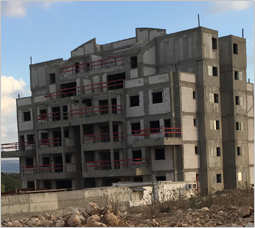Many individuals would like to make an investment in Israeli real estate, but are uncertain of the best way to proceed. The final decision must be based on each individual’s circumstances; e.g., would the property be owner-occupied or rented? Is the investor a resident of Israel or of another country? Is a physical property even needed, or is the goal to make a wise investment?
Let’s consider a typical example: an potential investor who lives in the U.S., wants to invest in property, with an eye toward renting it now and someday making it a retirement home. The best bet is probably to purchase an apartment rather than a detached house. Over 70% of households in Israel occupy apartments rather than individual houses, and apartment rental properties are highly in demand. For an absentee landlord, property management is generally less time-consuming with an apartment or condominium property.
Some potential investors express concern that the rent-to-value ratio in Israel is not high – at around 2-4% of the property value per year, real estate has a very high appreciation history in Israel, making the typical investment more than worthwhile. Another plus for potential landlords is the rental income tax exemption of 5,000 NIS per month.
For many investors, another viable option is partnering with others to purchase a property. Depending upon the type of joint investment, the buyer can share the costs (as well as future income) with others. Some partners may contribute more funds, while others may provide a greater share of the day-to-day management of a unit – an arrangement that can benefit an investor on a budget or a foreign investor.
Joint purchasing arrangements can be made informally with family members or friends. For a more formal legal structure, we recommend looking into a purchasing group. Such an entity is designed to help potential buyers locate properties and then assist with the purchase. Discounts are possible due to bulk purchases by the organization. In the Harish area, for example, BYS LTD is leading an effort to purchase many of the apartments in its new, planned neighborhood.
A final option to consider is investing in real estate through the Tel Aviv Stock Exchange (TASE). Numerous real estate companies trade on the exchange, as well as a Real Estate Investment Trust (REIT). Such an investment strategy gives an individual the ability to invest in real estate with less financial commitment. Maintaining a financial interest through such measures also helps bypass everything from contract negotiations to maintenance and management fees.Real estate investing through TASE provides a higher level of liquidity – an investor can literally buy and sell real estate interests on a daily basis.
As you can see, the options for real estate investment in Israel are quite flexible. Depending upon the investor’s income, lifestyle, country of residence, and other factors, an investment plan can be established that is ideal for the individual’s needs.
Israeli Real Estate: What Investment Option Is Best?
